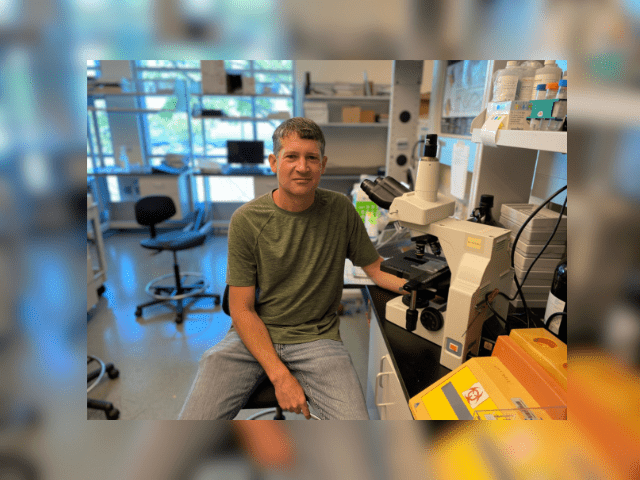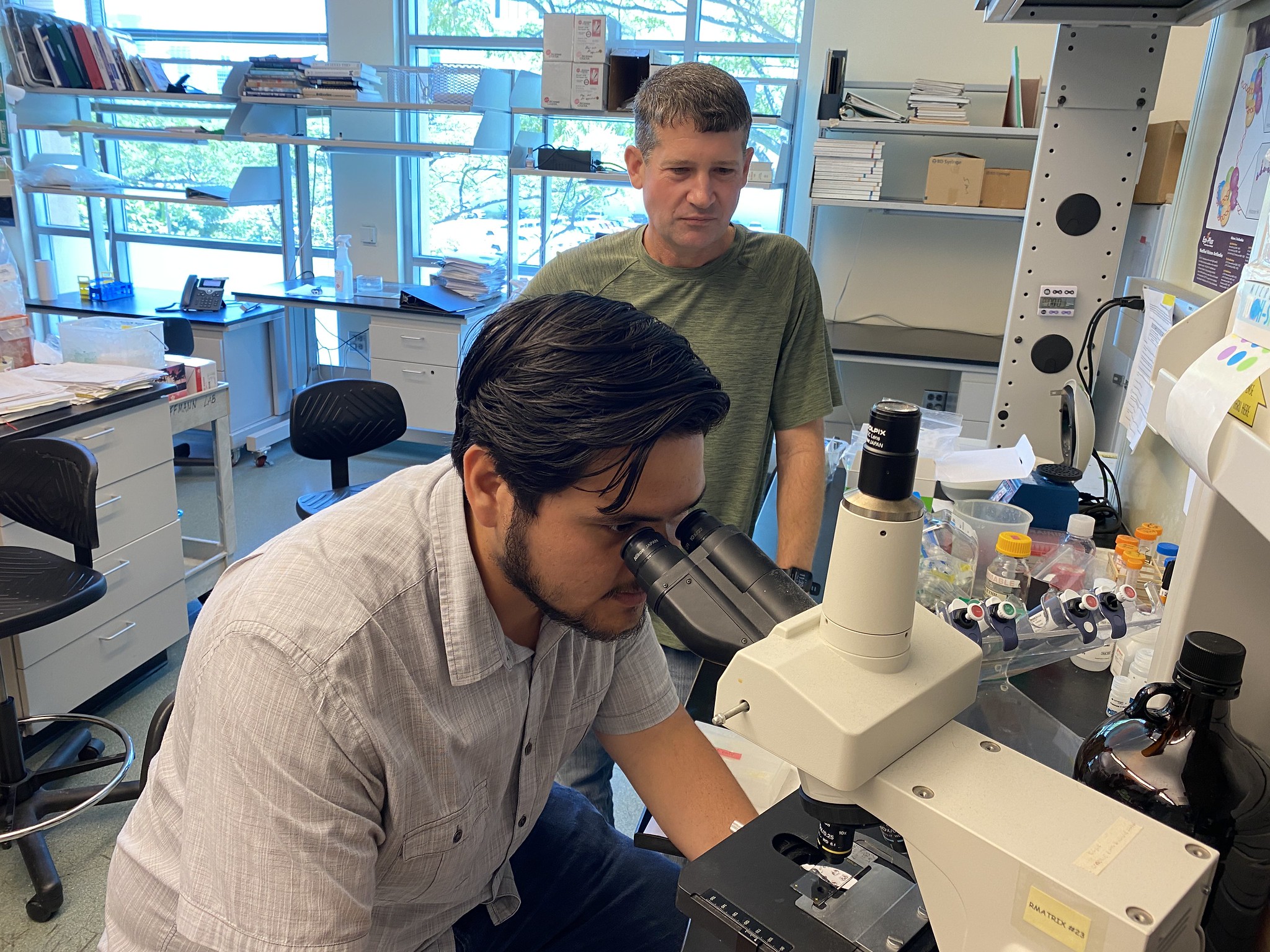
JABSOM researcher Dr. Matthew Pitts was awarded a prestigious R21 grant from the National Institutes of Health to embark on the exploration of selenoprotein I. This little-known protein plays a critical role in our health.
“The main objective of the grant is to investigate the role of selenoprotein I in neurodevelopment and neurodegenerative diseases,” Dr. Pitts said.
To put Dr. Pitts’s work into context, there are 25 selenoproteins encoded by the human genome, which are characterized by the presence of selenocysteine in their amino acid sequence. As a whole, selenoproteins play an essential role protecting against oxidative stress. While relatively little is currently known about selenoprotein I, rare mutations of this gene in humans leads to a form of hereditary spastic paraplegia with symptoms including severe motor deficits, impaired myelination, and epilepsy.
“What we found so far is that mice with selenoprotein I specifically knocked out in their central nervous system recapitulated key features of human patients including poor motor coordination, impaired growth, and disrupted myelination,” Pitts said. “Their brains also seem shrunken and smaller, which has been reported in human patients. We also have evidence indicating our brain-specific selenoprotein I knockout mice have pronounced changes in brain lipid composition, as levels of plasmalogens are decreased. Plasmalogens are a class of phospholipids with antioxidant properties that are enriched in myelin. Consequently, the enzymatic function of selenoprotein I facilitates plasmalogen synthesis.”

Dr. Matthew Pitts oversees the work of JABSOM graduate student Lance Nunes.
Since decreased levels of plasmalogen have also been linked to neurodegenerative diseases like Alzheimer’s and Parkinson’s, what Dr. Pitts learns can profoundly impact the kūpuna population in Hawaiʻi and beyond.
“It could have that influence down the road,” he said. “I would say that what we’re looking at is more of a basic science question that’s not specific to any population, but more of an understanding of how the brain develops, how selenoprotein I influences things like myelination, neurodegeneration, and so forth.”
The R21 grant allows the Cell and Molecular Biology researcher to investigate selenoprotein I for the next two years and possibly longer. His most immediate goal is to continue to show that JABSOM is on the cutting edge of neuroscience research by publishing these most recent findings.
“It will give us the resources and support to dig into it much deeper,” Pitts says. “We have a fair amount of data now, and we’re trying to get our manuscript published in a high-impact journal.”